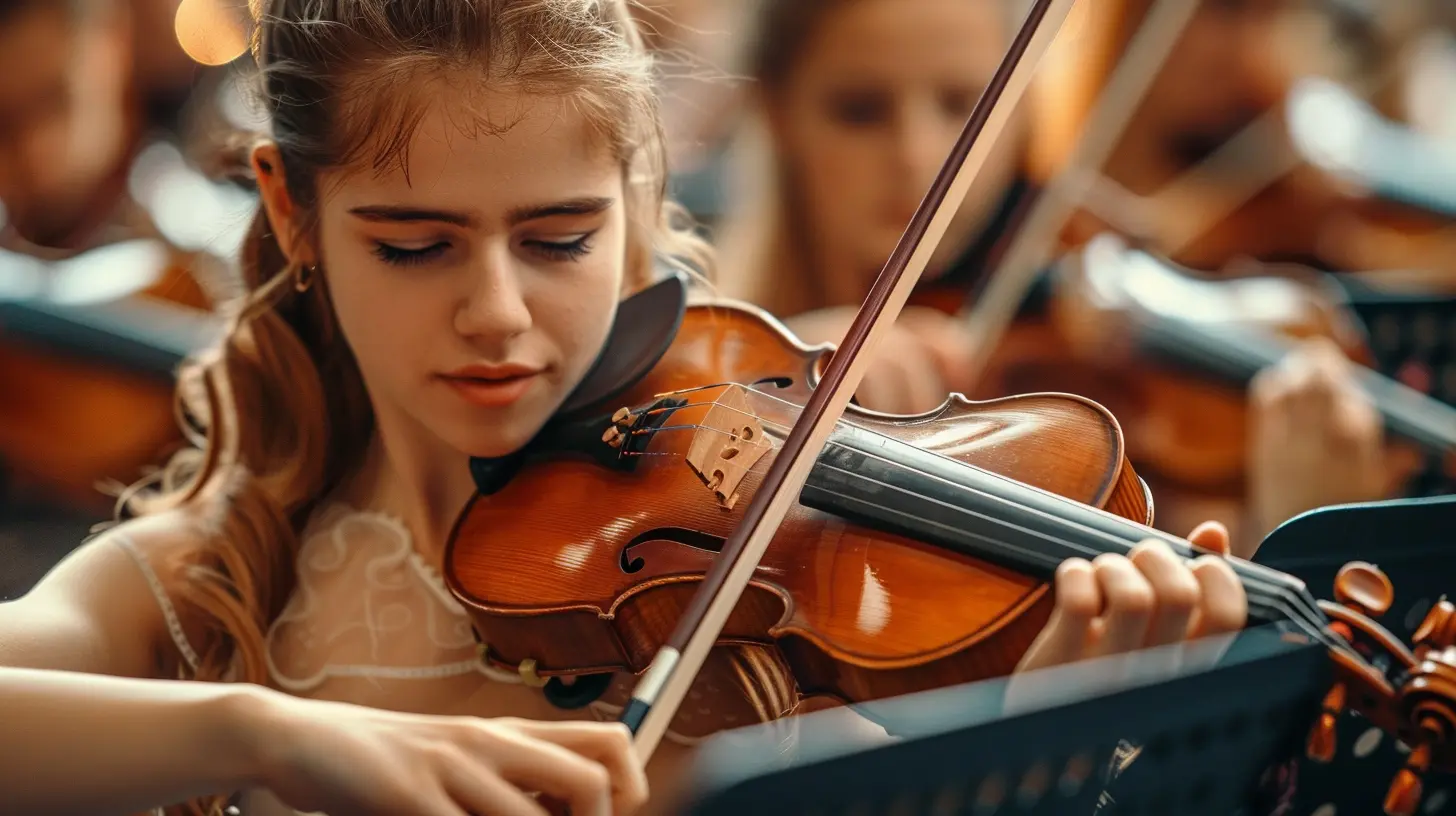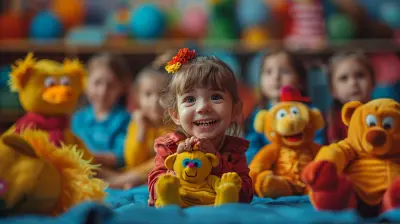24 July 2025
Music. Just reading that word might take your brain on a mini roller coaster of emotions and memories. Whether it’s the soothing sound of classical piano or the energizing beat of pop, music has a powerful hold on us — but did you know it does way more than entertain? It actually shapes the way we think, feel, remember, and even solve problems. That’s right — music plays a huge role in cognitive development, especially during childhood.
So, if you’ve ever questioned whether those piano lessons or jam sessions are worth it, the science (and the stories) say a loud yes!
Let’s break down how music influences the brain and why it’s an unsung hero (pun totally intended) in boosting brain power.
🎵 Why Music Isn’t Just Background Noise
We often think of music as just that thing playing in the background — in the car, at the gym, while cooking dinner. But here’s the kicker: even when we’re not actively paying attention to it, our brains are. Music taps into multiple regions of the brain — emotion, memory, motor skills, and logic, all at once.Think of the brain like a complex orchestra. Different sections (or instruments) work together to perform beautifully. Music is like the conductor, making sure everything is in sync. It lights the brain up like a Christmas tree, activating neural circuits that would otherwise stay dormant.
🧠 Music and Brain Development in Children
Let’s zero in on kids for a moment because this is where the magic really starts. You’ve probably seen a toddler sway or bounce to a beat — even before they can talk. That’s no coincidence. Music stimulates parts of the brain responsible for language, motor coordination, and emotional expression.1. Language Skills Take a Leap
Have you noticed how many kids' songs are repetitive and rhythmic? That’s actually by design. The beat helps kids break down language into bite-sized chunks — kind of like musical training wheels for talking.Researchers have found a strong link between musical training and better verbal memory, vocabulary, and reading comprehension. Rhyming, pitch recognition, and tempo help children figure out phonetics and sentence structure. Pretty neat, right?
2. Boosting Memory, Naturally
Ever had a song stuck in your head for days? Annoying, sure. But also proof of how music hardwires itself into our memory. Music can enhance memory retention and recall, making it a handy tool for learning.For kids, songs and rhythms help them remember everything from the alphabet to the order of the planets. Think about “The ABC Song” — it’s basically a musical mnemonic!
3. Sharper Focus and Better Attention Span
Music doesn’t just entertain — it trains the mind to focus and stay organized. Playing an instrument, for example, requires a child to read notes, stay on beat, use both hands, and listen intently — all at the same time. That’s serious multitasking.Over time, this sharpens their ability to concentrate, divide attention, and manage tasks more effectively. When these skills translate to the classroom, kids find it easier to absorb information and avoid distractions.
🎶 Music as a Brain Workout — For All Ages
It’s not just kids who benefit. Teens, adults, and even seniors can boost cognitive function through music. You can think of music as brain exercise — like a mental gym membership you never have to cancel.1. Improved Problem Solving and Creativity
Creating or listening to music pushes the brain to think abstractly. Composing a melody or improvising on an instrument is like solving a puzzle — figuring out what sounds work together and experimenting with combinations. This challenges the brain to form connections and look at things from different angles.Plus, music sparks creativity. It helps people think outside the box, which is useful in just about any profession or life scenario.
2. Emotional Intelligence and Empathy
Music stirs emotion and connects people. But it also helps individuals understand their own feelings and those of others. By being exposed to different musical styles and stories (like the heartbreak in blues or the hope in gospel), people build emotional awareness and empathy.This is especially helpful for teens navigating the emotional roller coaster of adolescence. Music becomes their outlet — and their mirror.
3. Resilience and Discipline
Learning an instrument isn’t easy. It takes time, patience, and a lot of off-key notes. But pushing through those early struggles teaches perseverance and self-discipline — skills that are golden for school, work, and life.And let’s face it, there’s something powerful about setting a goal (like mastering a song) and achieving it. That sense of progress fuels motivation like nothing else.
🧩 The Science Behind It All
Still skeptical? Don’t worry — science backs all of this up, and in a big way.What Brain Scans Show
Studies using MRI scans have shown that musicians have more developed areas of the brain related to hearing, movement, and spatial skills. Specifically, the corpus callosum — the bridge between the left and right hemispheres — is more robust. This means better coordination and information processing.Dopamine and Feel-Good Vibes
Music triggers the release of dopamine — the brain’s “feel-good” chemical. This not only uplifts mood, but also improves motivation, memory, and learning. Dopamine is basically the brain’s way of saying, “Hey, keep doing this!”🎹 Music in the Classroom: More Than Just Artsy Fun
Sadly, in many schools, music programs are the first to face budget cuts. But mounting evidence shows that music isn’t just a “nice-to-have” — it’s a “must-have” for a well-rounded education.Enhanced Academic Performance
Kids involved in music education often outperform their peers in math, reading, and writing. Why? Because music sharpens the same brain areas used in logical thinking and language processing.Better Social Skills
Group music activities, like band or choir, teach kids how to cooperate, listen to others, and build trust. These soft skills are just as critical as academic success — and last a lifetime.🥁 Music Therapy: Healing the Mind and Soul
We can’t talk about music’s power without tipping our hats to music therapy. From helping children with autism communicate, to aiding stroke survivors in regaining speech, music therapy is changing lives.For individuals with Alzheimer’s or dementia, music can light up memories that seemed long lost. It’s like a time machine for the brain, bringing comfort, joy, and connection.
🚀 Start Them Young, Keep It Going
So, what’s the takeaway here? If you’re a parent, teacher, or just someone who loves music — don’t wait. Encourage kids to sing, dance, pick up an instrument, or just listen actively. And if you’re an adult? It’s never too late!Pick up that dusty guitar, sing in the shower, or add a new playlist for working or studying. Every little bit counts.
🎤 Final Thoughts — Music is a Brain’s Best Friend
We often think of music as entertainment or a hobby. But it’s so much more — it’s brain food, emotional therapy, and cognitive training rolled into one. Music shapes how we think, learn, remember, and relate to the world.So next time you hear a melody that moves you, smile — your brain is getting a workout, and your soul is in on the dance too.
Keep listening, keep learning, and never underestimate the power of a good tune.









Sebastian McGowan
This article beautifully captures how music enriches cognitive development. It’s heartening to see the connection between melodies and brain growth. Understanding this can inspire parents and educators to incorporate music into learning, fostering a nurturing environment for our children's growth.
December 29, 2025 at 8:42 PM